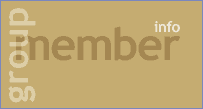


 |
|
Before he flies across the Atlantic to spend his first year of college in an International Partnership for Learning and Service at Whitland College in London in the fall and at Glasgow University in Scotland in the spring, Bryan Eustis will work as a counselor for the New England Deaf Camp for the fourth year in a row. Now fluent in Sign Language, he says it was the kids who actually taught him signing when he first began working there. Considering his group's Seevak project, he feels that "90% of the work is figuring out the compelling person," then the search "provided the real thirst for it," for completing the project. "We picked the right person and got really excited about it." Through the project, he learned an "unbelievable amount . . . computer-wise, I was an idiot . . . I learned to do a ridiculous amount of things." Even more than that, the knowledge he gained from researching Walter Suskind - in particular, talking with an Holocaust survivor about Suskind - "really stuck with me . . . the Holocaust was so unimaginable . . . so hard to understand that it made me more interested . . . in learning every little bit, every little detail . . . it was almost like discovering something that had never been discovered before - at least by me. Our children and grandchildren won't have the opportunity to talk with Holocaust survivors. The Holocaust . . . will impact life afterwards forever . . . you have an obligation . . . to talk to someone from that time." Not to talk with them would be "wasting a rare opportunity to learn about your past. I do believe that whoever you are, you can't help but be affected by it. The Holocaust was so far away from me . . . when I did this project, it totally made it real for me." Moreover, he was thrilled to help draw attention to Walter Suskind and as one of the Jewish heroes who helped save people during the Holocaust.
